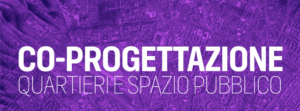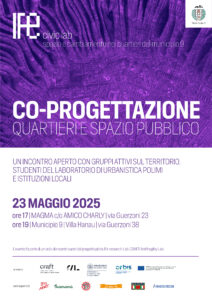ORBIS Pilot 5 “Transition Mechanisms for the Democratic City” launches its first in-person co-design focus group for the ORBIS Journey “Space and Change in the Districts of Municipio 9 – Milan.”

The event is curated by IFe Civic Lab, a territorial civic laboratory active in the north-western area of Milan, involving associations, residents, and researchers affiliated with Cities in Action for Learning Lab-PoliMi. It represents a valuable opportunity to discuss and further develop proposals for the regeneration of public spaces across 12 neighborhoods in Municipio 9, building on the work carried out by students from the Urban Planning Laboratory (AUIC School, Politecnico di Milano) in collaboration with local stakeholders and the municipal administration.
This participatory process is designed to address the theme of urban space transformation by testing deliberative tools and technologies made available and co-developed within the ORBIS project itself. The proposed hybrid methodology combines a first phase of public input gathering via Telegram App, with the contributions directly visualized on BCause, an incremental mapping platform developed by KMI, The Open University, and ORBIS partners. Alongside this, online dialogues are hosted and their content analyzed using the AI-generated ORBIS Tools.
These digital processes complement in-person activities, such as the upcoming co-design session on 23 May, where collaborative planning will be facilitated by the Democratic Reflection platform, featuring tailored co-design tools and cards. Soon, we will be able to share a first overview of the experiments and participation outcomes from this exploratory initiative.
The project contributes to a broader research effort on co-design methods and dialogue between active local stakeholders and institutions, supported by the Competence Center on Anti-Fragile Territories (CRAFT) at the Department of Architecture and Urban Studies, Politecnico di Milano.

